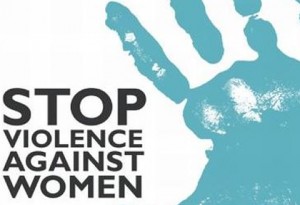The fight to make workplaces safe for women is everyone’s fight
 Members of every gender face workplace discrimination, violence and harassment, but stereotyping and the cultural practices of some societies make women more vulnerable.
Members of every gender face workplace discrimination, violence and harassment, but stereotyping and the cultural practices of some societies make women more vulnerable.
Sexual assaults, discrimination and humiliation happen at workplaces and women who suffer these do not feel safe to report or seek help – they fear there could be consequences, including loss of job and the income that comes with it.
The World Health Organisation (WHO), defines workplace violence as “incidents where staff are abused, threatened, or assaulted in circumstances related to their work. . . involving an explicit or implicit challenge to their safety, well-being or health”.
Verónica Montúfar, a Sociologist and Gender Equality Officer at the Public Services International, points out in a recent article on ghanabusinessnews.com that even though workplace violence affects all sectors and all categories of workers, the health sector – where women make up the majority of workers – is the one that best illustrates the seriousness of the situation.
She cited a WHO calculation that says violence in this sector makes up a quarter of all assaults that take place in the workplace. In South Africa for example, 61.9 per cent of all health care workers experienced at least one incident of physical or psychological workplace over the past 12 months.
She states further that when nurses are asked where this violence comes from, they point to patients and visitors on the one hand, and their colleagues and superiors on the other.
Montúfar argues further that in fact, work-related violence, and the steady increase thereof, is also due to external factors. It intensifies in situations of economic crisis and war. In the Democratic Republic of the Congo, violence against nurses became a weapon of war. A 2012 study found that about 80.1 per cent of health care workers had experienced one or more types of workplace aggressions.
As the world marks 16 Days of Activism, it is important to focus on the factors that inhibit the wellbeing and development of women, including the need for safety and security at workplaces. 16 Days of Activism, which is marked every year is a time to take action to end violence against women and girls around the world.
Even though the 1992 Constitution of Ghana spells out the fundamental human rights and freedoms of all citizens and specifically outlines rights to equality and freedom from discrimination, the laws are not being fully enforced, making Ghanaian women and girls vulnerable and exposed to different kinds of violence.
The Domestic Violence and Victim Support Unit (DOVVSU) of the Ghana Police estimates that about 75 per cent of female employees experience sexual harassment within the work environment, homes and in higher education institutions.
It is common to find workplaces that are unsafe for women, where they are forced to battle discrimination and abuse, including sexual harassment, denial of maternity protection as well as verbal abuse.
And while the Ghana Labour Act 2003 (651) Section 55-57 provides maternity protection for all pregnant women who work, there are documented incidents where women working in both the public and private sectors are compelled to sign contracts and agreements in which they agree not to get pregnant within the first two years of their tenure of work. Women who fail to abide by the terms of the agreements and get pregnant are pressured to terminate the pregnancies, and some do so through unsafe abortions because they fear they could lose their jobs.
The impact of such acts are very likely to affect not only the women in facing the acts, but their families and entire societies, making the fight to stem these acts everyone’s fight. Men should join in this fight to protect women, mothers, daughters, sisters and companions.
During this 16 Days of Activism, the Gender Centre for Empowering Development (GenCED) with the Open Society Initiative for West Africa (OSIWA) will hold a one-day national dialogue on the subject: ‘Labour laws & Women’s rights at the workplace’ in Accra on December 13, 2018 from 10am to 1pm at the Holiday Inn Hotel.
GenCED is a Non-Governmental Organisation focusing on empowering women and youth for sustainable development in communities, the organisation’s website says.
By Emmanuel K. Dogbevi
